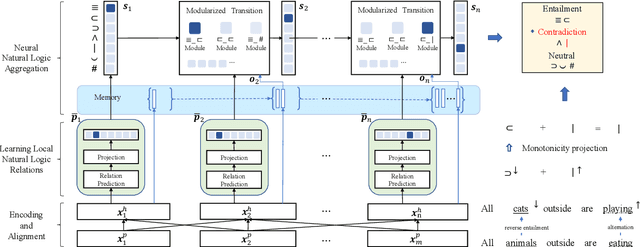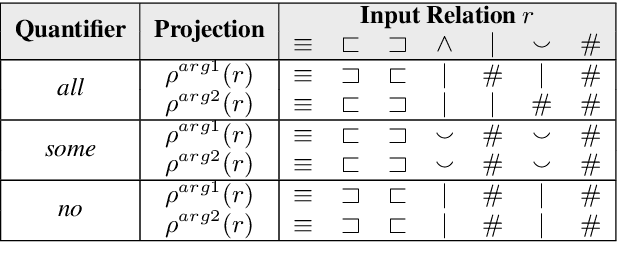Exploring End-to-End Differentiable Natural Logic Modeling
Paper and Code
Nov 08, 2020



We explore end-to-end trained differentiable models that integrate natural logic with neural networks, aiming to keep the backbone of natural language reasoning based on the natural logic formalism while introducing subsymbolic vector representations and neural components. The proposed model adapts module networks to model natural logic operations, which is enhanced with a memory component to model contextual information. Experiments show that the proposed framework can effectively model monotonicity-based reasoning, compared to the baseline neural network models without built-in inductive bias for monotonicity-based reasoning. Our proposed model shows to be robust when transferred from upward to downward inference. We perform further analyses on the performance of the proposed model on aggregation, showing the effectiveness of the proposed subcomponents on helping achieve better intermediate aggregation performance.
 Add to Chrome
Add to Chrome Add to Firefox
Add to Firefox Add to Edge
Add to Edge